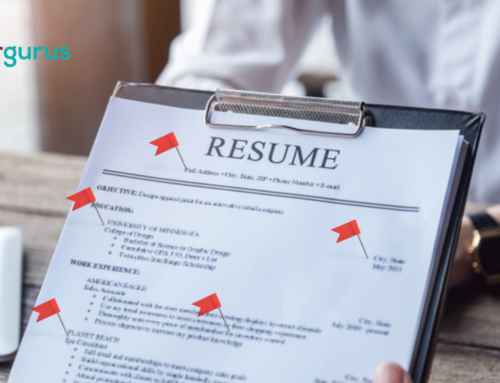The Introduction of Family and Domestic Violence Leave
“Trigger Warning”: This article will discuss the topic and specific experiences of family domestic violence and should be read with care if this may trigger you or you have had specific exposure or experiences to this subject matter.
What is this new leave about?
Well let’s start by explaining the acronym – FDVL stands for Family and Domestic Violence leave which is essentially a new form of leave that employees can access when they need time off work to deal with the impacts of family and domestic violence. This is for situations where they cannot attend to these matters outside of work hours. Think emergency situations or maybe going to court or attending a mediation, or maybe even needing to go to the police station to make a statement.
Why do we need this you maybe asking? Well in Australian family domestic violence is a serious problem and FDV is defined as:
“Violent, threatening or other abusive behaviour by a close relative that seeks to coerce or control a person and or causes the person harm or fear.”
According to the fair work act definition a “close relative” can include a family member including:
- spouse of former spouse
- de factor partner or former de facto partner
- grandparent
- grandchild
- a parent
- a sibling
- a child
- or an employee’s current or former spouse or de facto partner’s child, parent, grandparent, grandchild or sibling
- or a person related to the employee according to Aboriginal or Torres Strait Islander kinship rules.
What are FDVL entitlements?
All employees (including part-time and casual employees) are entitled to 5 days unpaid family and domestic violence leave each year. This entitlement is contained in the National Employment Standards (NES) as a minimum entitlement. Even if your policy, award, or employment contract has less than this in it, the minimum in the NES still applies.
When I say minimum what I really mean to tell you is that you can give your employees more unpaid leave than this, or you could also offer them paid leave in order to support them during a difficult time. When offering the 5 days of unpaid leave, this can also be broken down into part days where an employee takes less than one day at a time.
If an employee takes FDVL, they must let their employer know as soon as possible, but remember that as soon as possible for someone dealing with a violent family member may not be before work that day. Employees need to tell their employer how long they expect the leave to last, but do remember that this timeframe may change. An employer can ask for evidence, but this is not mandatory. Evidence could be documents issued by the police or a court, family violence support service documents or a statutory declaration.
What is changing?
Recently the Labour Government has introduced a bill which would add 10 days of paid family and domestic violence leave (FDVL) into the NES. This is for every employee (even casual employees) and it would be available every calendar year. It is interesting the way that this will apply to casual employees, if they need to take leave during a time that they were scheduled or are reasonably expected to be scheduled they will receive paid leave for this period.
The change isn’t happening today or tomorrow so don’t freak out that your HR system doesn’t support it yet. It is scheduled to commence on 1 February 2023, unless you are a small business (that is a business with less than 15 employees). For small businesses, it will commence six months later on the 1 August 2023. But do remember that nothing is stopping your organisation getting on the front foot and implementing this early.
What do I need to worry about?
The biggest issues that I have come across in the workplace in relation to FDVL are:
- Two employees that were in a relationship both requesting FDVL: So what should you do if you have two employees, who are/were in a relationship who both come to you to request FDVL. The first thing that you need to do is make sure that they are both safe and put things in place to ensure that they remain safe in the workplace. This one is a tricky one but if they both claim that they are victims of FDV you must provide them with the leave. Do keep in mind that you can ask for evidence and that if there is any hint that inappropriate behaviour has occurred in the workplace you may have to conduct an investigation. (We can help).
- An employment contract only providing for two days FDVL leave: If you have ever worked with me you will have heard me repeatedly and loudly say that an employer cannot give less than what is in the NES, no matter what a collective agreement, an award or a contract says. So you need to apply the minimum leave requirements as per the law.
- A person accused of FDV asking for leave: This is one that I have seen make many people uncomfortable, if the situation fits the legislation (i.e. the person says that they are experiencing threatening, controlling or behaviour that causes fear by a family member) then they are entitled to the leave. But in this situation, I find that the most important thing to do is provide assistance to the person to get help. This is a difficult and emotional situation for someone to be in and to be going through and they may not be getting help from anyone around them. At the end of the day, FDVL is (currently) unpaid leave so is there really any reason not to grant it to someone that has been accused of FDV? Next year when it becomes paid leave I still believe that it will be of benefit to the individual, their relationship with the organisation and society to support people accused to attend court and seek help.
But how do I actually help my employees?
Step one is easy, if you don’t have FDVL in your leave policy then add it and communicate the change to FDVL to your team! Step 2 is creating a specific FDV policy, and if you don’t know where to start HR Gurus are always available to help you.
If an employee comes to you and discloses that they need to use FDVL there are a number of things that you should do to support your team member. If you have an EAP (Employee Assistance Provider) offer their number, provide the 1800 RESPECT number, ask about making the workplace safer (such as walking to the carpark or public transport, managing unscheduled “visitors” to the office and gifts such as flowers being delivered to the office), or offer flexible work arrangements (hours of work, location of work, time to pick up kids from school etc).
It is also really important to make sure that you have a workplace where your staff feel comfortable enough to bring this up with you. You need to create a psychologically safe workplace where any sexual harassment or abuse (including seemingly innocent jokes) is dealt with promptly and appropriately and harassment/bullying training and policies are taken seriously.
You should also be aware of your workforce and hold appropriate conversations with people that might be displaying signs of FDV or perpetrating FDV to provide them with the opportunity to open up to you. You may need to get additional specialist help from outside of your organisation.
While this is a massive step in the right direction for Australia to improve support and action around FDV. After all, at least 1 in 5 of us have experienced FDV since the age of 15 (that’s both men and women) and no I am not making up these numbers, it is reported by the Australian Bureau of Statistics (ABS) 2022 Personal Safety Survey (PSS). The sad thing is that this data does not capture all elements of FDV it uses a narrow definition so we know that the true numbers are actually higher. It is also worth noting that the last time this survey was completed was in 2016 and further information from state police indicated that FDV increased during the COVID 19 pandemic. I really hope that we get to see more money and focus on appropriate education in schools about respectful relationships and actually helping people who have committed FDV to understand themselves and become better people.
Confidential information, counselling and support for people impacted by domestic and family violence is available at the 1800 RESPECT website this is the national sexual assault, domestic and family violence counselling service. You can also call 1800 RESPECT (1800 737 732) any time of the day or night.
Further support for organisations can also be found on the While Ribbon website. Organisations can also gain accreditation and provide a whole of organisation public commitment to eliminate specific FDV. White Ribbon Australia Workplace Accreditation helps demonstrate to staff and stakeholders – customers, clients and partners – that you are committed to gender equality and creating a safe workplace for everyone; that your commitment goes beyond words and has been assessed and endorsed by experts in the field. This is also something that HR Gurus can assist you with.
Written by Guinevere Missingham
Continue Reading
Get a personal consultation.
Call us today at 1300 959 560.
Here in HR Gurus. We make HR simple because it should be.





